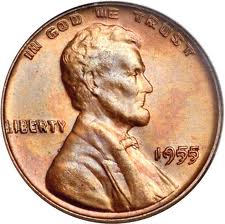It sounds a bit awkward in English - "freedom of thought". The more common expression is freedom of speech or freedom of expression. But, in Turkish, one of the ways to convey this same idea is "düşünce özgürlüğü", which, translated literally is "freedom of thought".
It always struck me as funny, and I would often joke with my Turkish friends that they had freedom to "think" anything, but not the freedom to "express" their thoughts. Sadly, many Turkish journalists are currently in jail for doing just that - expressing their thoughts. It got me thinking though. Here in America, we are all very proud of our "freedoms", and the first Amendment to the Constitution enshrines our inalienable right to "freedom of expression"
This right is sacrosanct in our society. Americans exercise this right in all kinds of "offensive" ways. For example, by making jokes about sitting Presidents that would get you shot in some countries and land you in prison in others. In America, this has turned into a lucrative profession, e.g. John Stewart. We simply laugh at the joke and move on, maybe without even thinking how wonderful it is to live in country where one can ridicule their leaders.
Other people have "exercised" this right by burning the American flag, which has to be one of the most paradoxical demonstrations on the planet. "I protest the existence of this country which affords me the right to do what I'm doing right now!" (This person needs their head examined). However, I'm not against people burning the American flag for the simple reason that it makes it easier to identify the mentally incompetent... Besides, freedom of expression is sacrosanct! It is an inviolable right of the individual! That is the American way, or so we say. It's a worn out topic. I want to go back to "freedom of thought"
You see, I'm not sure that "freedom of thought" is really possible in this country (or any other country for that matter). Why? Because the crucial ingredient for any healthy thought process is accurate factual information.
For example, if one wanted to weigh the merits of injecting children with a liquid containing live attenuated polio viruses versus dead (inactivated) viruses, reliable data input would be a crucial prerequisite to working those mental muscles. Imagine "thinking" about this problem without having any data. It wouldn't do much good. You have the freedom to think about it, but realize quickly that no benefit can be derived from the effort.
In the same way, citizens of this country need data, information, facts, in order to engage in productive thinking. I am not, of course, saying that productive mental activity happens automatically in the presence of "knowledge". Minds still have to be trained in the fine art of drawing appropriate conclusions, but without facts, no mind, no matter how astute, can render a true verdict.
So, I ask, do you feel like you have the "facts" necessary to make informed decisions? For me the answer is clearly, "No!" For example, I want to know who is responsible for giving millions of dollars ear-marked for small business to gigantic corporations, how much money the Federal Reserve has given to foreign central banks and American banks, who redacted the statements released by Attorney General Eric Holder, who actually penned the healthcare bill that even Pelosi had not read, who decided to recognize the independence of Kosovo but not that of Ossetia, and jillions more besides.
You see without the right facts our thoughts aren't worth a damn, much less a penny.
Of course, this is why we have the "Freedom of Information Act". Does anyone think it has made government transparent, or that it has aided in preventing or even punishing corruption? I'd love to hear your thoughts.
It always struck me as funny, and I would often joke with my Turkish friends that they had freedom to "think" anything, but not the freedom to "express" their thoughts. Sadly, many Turkish journalists are currently in jail for doing just that - expressing their thoughts. It got me thinking though. Here in America, we are all very proud of our "freedoms", and the first Amendment to the Constitution enshrines our inalienable right to "freedom of expression"
This right is sacrosanct in our society. Americans exercise this right in all kinds of "offensive" ways. For example, by making jokes about sitting Presidents that would get you shot in some countries and land you in prison in others. In America, this has turned into a lucrative profession, e.g. John Stewart. We simply laugh at the joke and move on, maybe without even thinking how wonderful it is to live in country where one can ridicule their leaders.
Other people have "exercised" this right by burning the American flag, which has to be one of the most paradoxical demonstrations on the planet. "I protest the existence of this country which affords me the right to do what I'm doing right now!" (This person needs their head examined). However, I'm not against people burning the American flag for the simple reason that it makes it easier to identify the mentally incompetent... Besides, freedom of expression is sacrosanct! It is an inviolable right of the individual! That is the American way, or so we say. It's a worn out topic. I want to go back to "freedom of thought"
You see, I'm not sure that "freedom of thought" is really possible in this country (or any other country for that matter). Why? Because the crucial ingredient for any healthy thought process is accurate factual information.
For example, if one wanted to weigh the merits of injecting children with a liquid containing live attenuated polio viruses versus dead (inactivated) viruses, reliable data input would be a crucial prerequisite to working those mental muscles. Imagine "thinking" about this problem without having any data. It wouldn't do much good. You have the freedom to think about it, but realize quickly that no benefit can be derived from the effort.
In the same way, citizens of this country need data, information, facts, in order to engage in productive thinking. I am not, of course, saying that productive mental activity happens automatically in the presence of "knowledge". Minds still have to be trained in the fine art of drawing appropriate conclusions, but without facts, no mind, no matter how astute, can render a true verdict.
So, I ask, do you feel like you have the "facts" necessary to make informed decisions? For me the answer is clearly, "No!" For example, I want to know who is responsible for giving millions of dollars ear-marked for small business to gigantic corporations, how much money the Federal Reserve has given to foreign central banks and American banks, who redacted the statements released by Attorney General Eric Holder, who actually penned the healthcare bill that even Pelosi had not read, who decided to recognize the independence of Kosovo but not that of Ossetia, and jillions more besides.
You see without the right facts our thoughts aren't worth a damn, much less a penny.
Of course, this is why we have the "Freedom of Information Act". Does anyone think it has made government transparent, or that it has aided in preventing or even punishing corruption? I'd love to hear your thoughts.

 RSS Feed
RSS Feed

